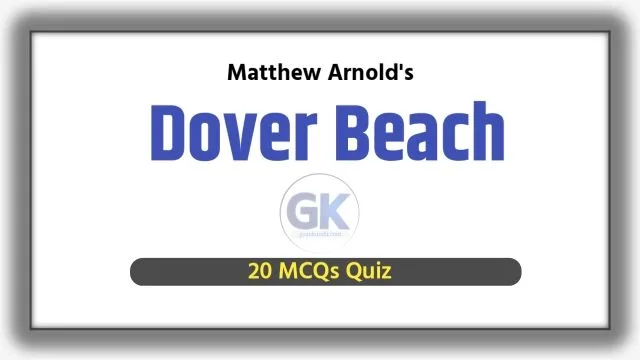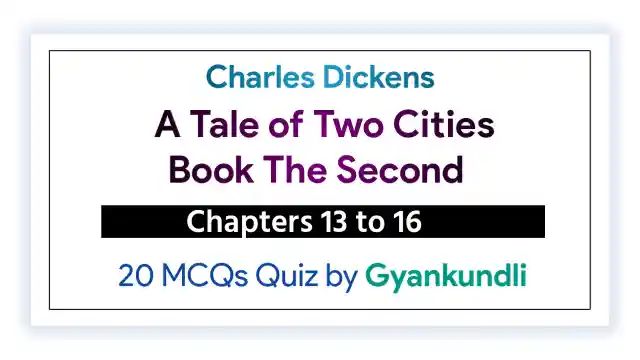Dover Beach MCQ Quiz : Matthew Arnold, a major Victorian poet (1822–1888), wrote Dover Beach around 1851, and it was first published in 1867 in his collection New Poems. The poem reflects the intellectual and spiritual uncertainty of the Victorian Era, an age when science and industrial progress began to challenge traditional religious beliefs.
The poem begins with a serene image of the English Channel at night—“The sea is calm tonight.” This calmness, however, soon turns into melancholy as the poet hears the “grating roar / Of pebbles” that symbolizes the eternal sadness of human life. Arnold uses the sea as a metaphor for faith and human emotion, drawing the reader into a world where peace seems momentary and fragile.
In the middle section, the poet recalls how Sophocles, too, heard the same sound centuries ago, linking the sorrow of the ancient world with that of the modern. This connection deepens the sense of universal human suffering. The poem then introduces the famous metaphor of the “Sea of Faith,” once full and bright, now retreating — leaving the world bare and uncertain.
In the final stanza, Arnold speaks to his beloved, asking her to remain true and steadfast amid the world’s confusion. He describes the world as “a darkling plain / Where ignorant armies clash by night,” expressing the chaos of a faithless age. Dover Beach thus stands as a timeless meditation on the loss of faith, the isolation of modern life, and the need for human love as a moral refuge.
Text of Dover Beach
The sea is calm tonight.
The tide is full, the moon lies fair
Upon the straits; on the French coast the light
Gleams and is gone; the cliffs of England stand,
Glimmering and vast, out in the tranquil bay.
Come to the window, sweet is the night-air!
Only, from the long line of spray
Where the sea meets the moon-blanched land,
Listen! you hear the grating roar
Of pebbles which the waves draw back, and fling,
At their return, up the high strand,
Begin, and cease, and then again begin,
With tremulous cadence slow, and bring
The eternal note of sadness in.
Sophocles long ago
Heard it on the Ægean, and it brought
Into his mind the turbid ebb and flow
Of human misery; we
Find also in the sound a thought,
Hearing it by this distant northern sea.
The Sea of Faith
Was once, too, at the full, and round earth’s shore
Lay like the folds of a bright girdle furled.
But now I only hear
Its melancholy, long, withdrawing roar,
Retreating, to the breath
Of the night-wind, down the vast edges drear
And naked shingles of the world.
Ah, love, let us be true
To one another! for the world, which seems
To lie before us like a land of dreams,
So various, so beautiful, so new,
Hath really neither joy, nor love, nor light,
Nor certitude, nor peace, nor help for pain;
And we are here as on a darkling plain
Swept with confused alarms of struggle and flight,
Where ignorant armies clash by night.
Form, Meter, and Rhyme Scheme of Dover Beach
Form: The poem consists of four uneven stanzas with no fixed pattern, reflecting the shifting thoughts and emotions of the speaker.
Meter: Mainly iambic, though irregular. Lines vary. (mainly written in iambic pentameter, although it has irregularities and variations)
Rhyme Scheme: Irregular and changing throughout.
Dover Beach MCQ Quiz
Discover more from Gyankundli
Subscribe to get the latest posts sent to your email.














we are grateful to you sir, to provide us so reliable and authentic content
Thank you so much for your support 🙏